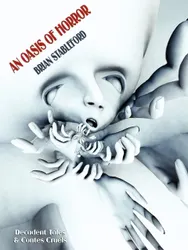Long after he was dead, French poet Charles Baudelaire inspired a Decadent Movement in France, which became definitive of fin de siecle sensibility. One of the historical and influential links between Baudelaire and the new Decadents was the Comte de Villiers de l'Isle Adam, who called the first of his own collections of Decadent prose Contes cruels, because they spurned conventional means of attaining literary closure by celebrating 'the irony of fate' -- the capacity that the course of events has for thwarting human ambition in a frankly mocking fashion. "Because it became so firmly linked to the notion of the fin de siecle, the Decadent Movement did not survive the end of the nineteenth century in France and Decadent literature became increasingly unfashionable thereafter -- but it was, by definition, a literary species guaranteed to thrive on its own unfashionability. The stories collected here have been woefully unappreciated, even when they have succeeded in reaching print—as some have not until now—but I have never been tempted to abandon the production of such items, and am far fonder of them than I am of many works that proved more economically viable." —from the author's Introduction.
The tales in this collection include:
"An Oasis of Horror"
"Justice," "The Copper Cauldron"
"Nobody Else to Blame"
"Heartbeat"
"Upon the Gallows-Tree"
"The Devil's Men"
"The Elixir of Youth"
"The Lamia's Soliloquy"
"And the Hunter Home from the Hill"
"The Riddle of the Sphinx"
"My Mother, the Hag"
"The Devil's Comedy"
"The Power of Prayer."
Never before collected into book form.


